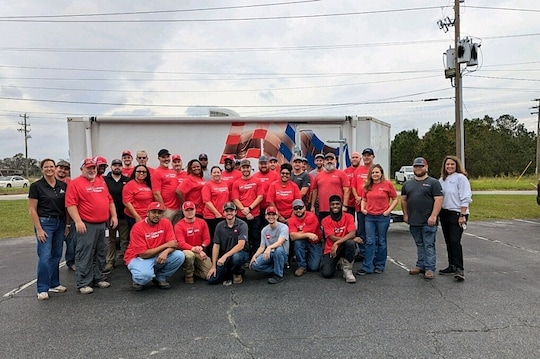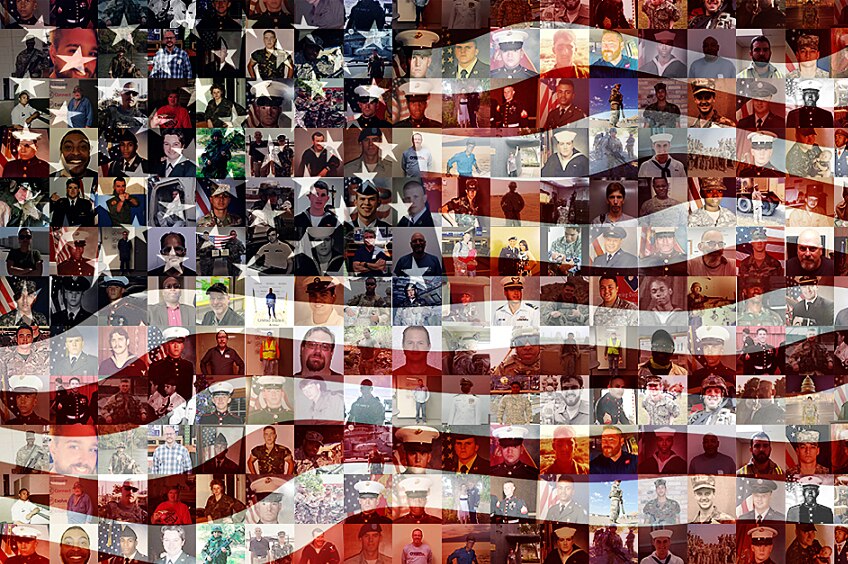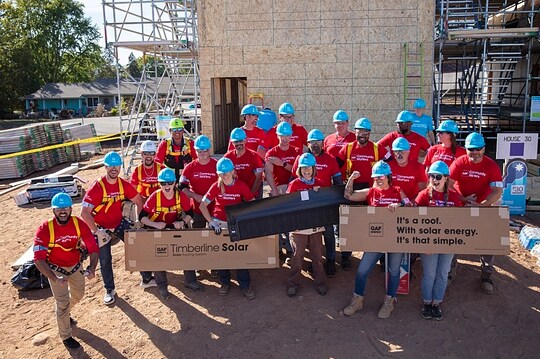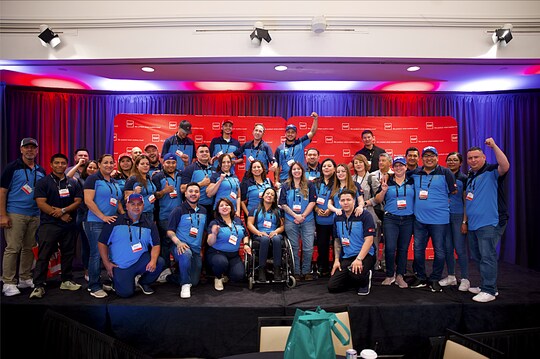
It's no secret that manufacturing plants need reliable workers for the estimated 2,4 million unfilled manufacturing jobs predicted between now and 2028. Les vétérans ont la discipline et les compétences pour prospérer dans le domaine de la fabrication.
"All veterans-regardless [of whether] they have manufacturing experience-have a unique set of skills that take an enormous amount of time to teach. You're saving time from a training perspective when you hire vets," says Daniel Benjamin, former US Army company commander and current GAF plant manager in Phoenix, Arizona.
Here, Benjamin speaks to the benefits of hiring veterans in manufacturing, demonstrating how they thrive within a manufacturing plant environment, offering suggestions for working with veterans, and giving tips for raising awareness of manufacturing jobs in the veteran community.
From the Army to Plant Manufacturing
Benjamin enlisted in the Army Signal Corps in September 2011, making his way through the ranks from soldier to platoon leader to executive officer and then company commander before a medical discharge in 2013.
After the army, he entered the aerospace industry. However, he began to feel burnt out by the long weeks and stress over the course of several years. And when he came across GAF, the industry was completely different.
"They took a chance on me, and I took a chance on them, and it's the best decision I've ever made," Benjamin says. "GAF lets you be you. They let you make appropriate decisions and offer more control of your career and day-to-day life."
Transferable Skills for Veterans in Manufacturing
Being a veteran himself, Benjamin knows firsthand what veterans offer employers. "When you hire a vet, you get someone with that work ethic and drive to succeed, who's willing to invest themselves. They want to be with a company long term."
Benjamin breaks down some of the qualities that allow veterans in manufacturing to create such a symbiotic relationship:
- Work ethic: Veterans are trained to work hard, stay focused, and get the job done. When Benjamin first started at GAF, he didn't know anything about roofing. That didn't matter—as he learned from a good team leader, "Don't ever tell someone to do something if you're not capable of it." So, he stayed on the ground floor and earned respect to see what the job actually entailed.
- Focus on safety: Military training breeds a focus on safety, meaning veterans are trained to follow rules and safety protocols. "We're able to work safely in high-pressure situations. This is a valuable skill and so important in manufacturing," says Benjamin.
- Leadership: Veterans have been trained to build confidence. "Having the confidence to make a decision is huge." For instance, Benjamin fosters leadership at his plant through suggestion boxes for safety, process, and facility ideas that show he values his team's ideas.
- Team players: Veterans are well-suited to working with diverse groups of people in a team environment such as a manufacturing facility. Because the Army is so diverse, Benjamin understood the importance of being a team player and working with people from different cultures and backgrounds.
- Solution-oriented: Serving in the Armed Forces means learning to think outside the box. For Benjamin, this often entailed asking people to complete a task with limited resources—but in the end, it always led to unique solutions and hard work.
- Cool under pressure: Ongoing issues stemming from the pandemic and the supply chain have created stress for those within the industry. As a veteran, Benjamin is trained to come up with solutions when the pressure is high. His team is able to make quick, smart decisions as they come, such as when they're out of a particular tool or have to substitute one raw material for another.
Working with Veterans
"One thing you'll get out of a vet is loyalty," says Benjamin. "We want to go above and beyond to help our team."
Benjamin immediately pinpoints the strengths of one veteran at his plant, citing him as a hard worker who fits in well with the team, and also holds himself to a high standard of performance. Benjamin knows that deployment experience can affect a person in different ways even after their service ends, such as the tendency to get overstressed after making a mistake. With this employee, Benjamin understands the pressure he puts on himself comes from a drive to succeed. He takes a calm approach to building the employee's confidence back up during the learning process, saying, "Hey, it's OK to make a mistake."
"Over time, constantly hearing that it was OK, the employee started to manage himself, and he's outstanding," says Benjamin. He always steps in and handles things that need to be handled despite the pressure he puts on himself, and that's where that strong work ethic comes in."
Attracting Veterans
Veterans served our country, and one way to attract more veterans in manufacturing is to provide service opportunities in their communities.
"GAF is all about social responsibility. For example, our Phoenix plant invests money and time in a center for women who've experienced domestic violence. When you consider the people it affects, it has a bigger impact than we might even know."
Benjamin goes on to encourage manufacturing plants near military bases to invest in and donate to schools with students who are children of veterans, or to offer community events that provide a service to veterans. GAF has also partnered with veterans through Team Rubicon, where they "serve communities by mobilizing veterans to continue their service, leveraging their skills and experience to help people prepare, respond, and recover from disasters and humanitarian crises."
There are great benefits for both veterans and a manufacturing plant when the two connect. Ready to get started with your new manufacturing career, or know a veteran who would be a good fit? Learn more about a career with GAF.



